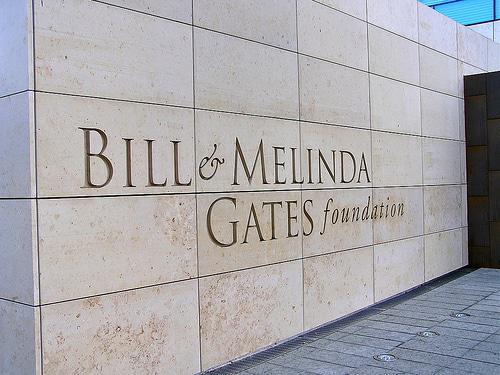Help to get cervical cancer vaccine to women who need it
The GAVI Alliance, a group of the world’s top global health agencies, governments and private partners, has prioritized its support for new and underused vaccines to fight deadly diseases in the developing world.
Cervical Cancer Action said the move announced this week could dramatically increase immunization against the Human Papillomavirus (HPV), which is the major cause of cervical cancer.
Vaccines often take years to reach the poorer countries due to cost, shortages and poor distribution channels.
Worldwide there are 2,3-million cases of cervical cancer with 500 000 new cases and 250 000 deaths recorded each year.
‘That’s an Asian tsunami every year,’ said Professor Lynette Denny of the University of Cape Town, one of the world’s foremost experts on cervical cancer.
Cervical cancer is the most common cancer among women in the developing world where 80% of new cases and deaths occur. It is also one of the only cancers preventable with a simple test.
Denny described it as a disease of ‘inequity of access to health care’, as most women could be saved if it is diagnosed early. In countries such as Australia cervical cancer is almost non-existent due to a vigorous screening programme.
Cervical cancer occurs when the cervix is infected with certain types of Human Papillomavirus (HPV). Cervical cancer can be prevented if diagnosed early with a pap smear. However, the HPV vaccine can prevent the infection in the first place.
In South Africa, screening for cervical cancer in the public health system is inadequate with women only entitled to get a free pap smear every 10 years starting from the age of 30.
However, it is estimated that there is a current backlog of pap smears tests of five million, and that South African women face a one in 26 lifetime risk of developing cervical cancer.
Cervical Cancer Action has cautioned that although the availability of the vaccine would be ‘fantastic’, it would mean little to the older women who were already infected with HPV.
‘In order to reduce the numbers suffering from cervical cancer over the next 20 years it is essential that appropriate screening and treatment programmes are implemented in developing countries, simultaneous with vaccine introduction,’ the group said.
The GAVI Alliance will be assessing the interest of various countries in cancer prevention as well and political will and financial will among donors to fund the vaccine. ‘ health-e news service
Author
Republish this article
This work is licensed under a Creative Commons Attribution-NoDerivatives 4.0 International License.
Unless otherwise noted, you can republish our articles for free under a Creative Commons license. Here’s what you need to know:
You have to credit Health-e News. In the byline, we prefer “Author Name, Publication.” At the top of the text of your story, include a line that reads: “This story was originally published by Health-e News.” You must link the word “Health-e News” to the original URL of the story.
You must include all of the links from our story, including our newsletter sign up link.
If you use canonical metadata, please use the Health-e News URL. For more information about canonical metadata, click here.
You can’t edit our material, except to reflect relative changes in time, location and editorial style. (For example, “yesterday” can be changed to “last week”)
You have no rights to sell, license, syndicate, or otherwise represent yourself as the authorized owner of our material to any third parties. This means that you cannot actively publish or submit our work for syndication to third party platforms or apps like Apple News or Google News. Health-e News understands that publishers cannot fully control when certain third parties automatically summarise or crawl content from publishers’ own sites.
You can’t republish our material wholesale, or automatically; you need to select stories to be republished individually.
If you share republished stories on social media, we’d appreciate being tagged in your posts. You can find us on Twitter @HealthENews, Instagram @healthenews, and Facebook Health-e News Service.
You can grab HTML code for our stories easily. Click on the Creative Commons logo on our stories. You’ll find it with the other share buttons.
If you have any other questions, contact info@health-e.org.za.
Help to get cervical cancer vaccine to women who need it
by Anso Thom, Health-e News
June 27, 2008


